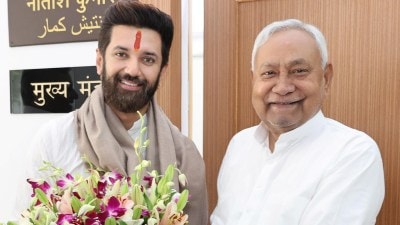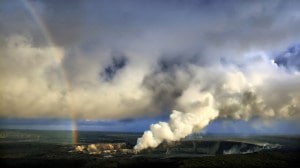If India tries to digest East Bengal, it may cause massive indigestion: Nixon
CHOU: ... India should withdraw its troops from the areas it is occupying in West Pakistan, and Pakistan should also withdraw from the lesse...

CHOU: … India should withdraw its troops from the areas it is occupying in West Pakistan, and Pakistan should also withdraw from the lesser areas it occupies in India. Bhutto agrees. These two things, at least, the Indian side should abide by. If the US recognises Bangladesh after this situation is brought about, then we believe this would raise the prestige of the US in the United Nations.
After all, what you want is to bring about the withdrawal of all troops from Bangladesh and West Pakistan. Also, you will be able to encourage Mr Bhutto and give him some assistance. That is what they need. You said your actions should be parallel to ours, and we don’t mind that. We said this both to Yahya, the former President, and to the present President. Both of us owe something to Yahya, although he didn’t show much statesmanship in leading his country, for bringing the link between our two countries.
NIXON: He is a bridge.
CHOU: We should not forget and we cannot forget, especially that Dr Kissinger was able through him to come secretly for talks here. And when a man makes a contribution to the world, we should remember him.
KISSINGER: Actually the President sent a message to Bhutto that he should treat Yahya well in retirement and we would not look favourably on any retribution. It was a personal message from Pakistan.
CHOU: Of course we don’t want to interfere in others’ internal affairs, but Yahya really did not lead his troops in East Pakistan well. Even though we assisted with armaments, we didn’t send a single military personnel, what the Soviet Union calls military adviser. We only sent some people to train in the use of planes and guns we sent, and afterwards brought these people back. At the time of the ceasefire they (the Pakistanis) still had 80,000 troops in East Pakistan. It was not a situation in which they couldn’t keep fighting. We know the Pakistanis are good fighters, and the men wanted to fight on. The trouble was the Commanders were terrible—they just scattered the troops. General Patton, whom you admire, would not have done that. Yahya should have concentrated his troops to win a victory, and once the Indians had suffered a defeat they would have stopped because West Bengal was not very secure either.
So at that time even our Vice Foreign Minister still believed they could win the war. Bhutto too. They were both men of letters; not soldiers. But we didn’t believe this. We said that if they fought, they would sacrifice everything….
You saw Huang Hua (China’s Permanent Representative to the United Nations) on December 10.
|
CHOU: Both of us owe something to Yahya for bringing the link between our two countries. We should not and can’t forget that Dr Kissinger was able through him to come secretly for talks here. KISSINGER: The President sent a message to Bhutto that he should treat Yahya well in retirement and we would not look favourably on any retribution. It was a personal message from Pakistan. CHOU: Yahya really did not lead his troops in East Pakistan well. We know the Pakistanis are good fighters, and the men wanted to fight on. The trouble was that the Commanders were terrible, they scattered the troops. Yahya Khan should have concentrated his troops to win a victory, and once the Indians had suffered a defeat they would have stopped because West Bengal was not very secure either |
NIXON: Yes, the 10th.
CHOU: That was the best time, the first ten days of December. They lost within 20 days. That was from the 25th of November to the 15th of December, but at that time they still had plenty of time. President Yahya was probably a good man, a man of good intentions, but he didn’t know how to lead an army, how to fight. So there was some reason for the dissatisfaction of the younger generals in the Pakistani army with President Yahya, but there is also some reason to say good words about him.
NIXON: As Dr Kissinger said in his conversation with the Prime Minister, one doesn’t burn down a bridge which has proved useful.
CHOU: Yes, there’s a Chinese saying that to tear down a bridge after having crossed it is not good.
NIXON: With regards to Bangladesh, in view of what the Prime Minister said, we will have Dr Kissinger inform you with regard to the time of recognition.
|
CHOU: It’s a great pity that Mrs Gandhi has taken as her legacy the philosophy of her father in Discovery of India. Story continues below this ad CHOU: Yes, he was thinking of a great Indian empire, Malaysia, Ceylon, etc. He would probably also include our Tibet |
Now the regard to the problem of West Pakistan. We want to help there because it is essential to carry out the Prime Minister’s philosophy which is also ours, that no nation should establish dominance in that part of the subcontinent. We have a problem with regard to military assistance, because our Congress, as I informed the Prime Minister and as the Deputy Foreign Minister knows, American public opinion, oppose military assistance to Pakistan. Incidentally, in retrospect it is my belief that had we been able to provide more assistance to Pakistan it would have averted war, because India wouldn’t have tempted to win what they thought was a cheap victory. But that is water over the dam.
CHOU: And I would also like to add here that the Pakistani Government policy toward East Pakistan had many errors. But because this was their internal matter we could only give advice and nothing more.
KISSINGER: (Reading from a cable) Mr President, you were speaking of military shipments. We have information that the Soviet Union has shipped since November 150 tanks from Poland and 100 armored personnel carriers from Czechoslovakia. They were shipped in two ships each month in November and December. In January a third ship was to bring military equipment to India.
NIXON: To India?
KISSINGER: To India.
NIXON: The problem is to find some way that West Pakistan can find some military equipment and assistance. On our side, what we will do is to supply substantial amounts of economic assistance to West Pakistan. That would enable West Pakistan to—we would think in the interest of its defense—to acquire arms from other sources. As a matter of fact, that is the tragedy of our policy in India. We supplied almost 10 billion dollars in assistance to India in the last 20 years—very little was military assistance, it was economic—and that relieved India so it could purchase very substantial amounts of arms from the Soviet Union, and also manufacture arms. That was not our intent, but that’s what happened.
With regard to our aid to India on this point—economic assistance—we are going to move in a very measured way. I am resisting considerable pressure from the public and the press to rush in and resume economic assistance at former levels. We are going to wait and see what India does with regard to the border problem and our relations generally.
CHOU: And India actually is a bottomless hole. (Nixon laughs)
NIXON: When the Prime Minister referred to the problem India has with Bangladesh, as I look at India’s brief history, it has had enough trouble trying to digest West Bengal. If now it tries to digest East Bengal it may cause indigestion which could be massive.
CHOU: That’s bound to be so. It is also a great pity that the daughter (Madame Gandhi) has also taken as her legacy the philosophy of her father embodied in the book Discovery of India (in English). Have you read it?
KISSINGER: He was thinking of a great India empire?
CHOU: Yes, he was thinking of a great Indian empire—Malaysia, Ceylon, etc. He would probably also include our Tibet. When he was writing that book in a British prison, but one reserved for gentlemen in Darjeeling. Nehru told me himself that the prison was in Sikkim, facing the Himalayan mountains. At the time I hadn’t read the book, but my colleague Chen Yi had, and called it to my attention. He said it was precisely the spirit of India which was embodied in the book. Later on when I read it I had the same thought.
(Excerpted from The White House & Pakistan: Secret Declassified Documents, 1969-1974 by Fakir Syed Aijazuddin, Oxford University Press)






- 01
- 02
- 03
- 04
- 05

























